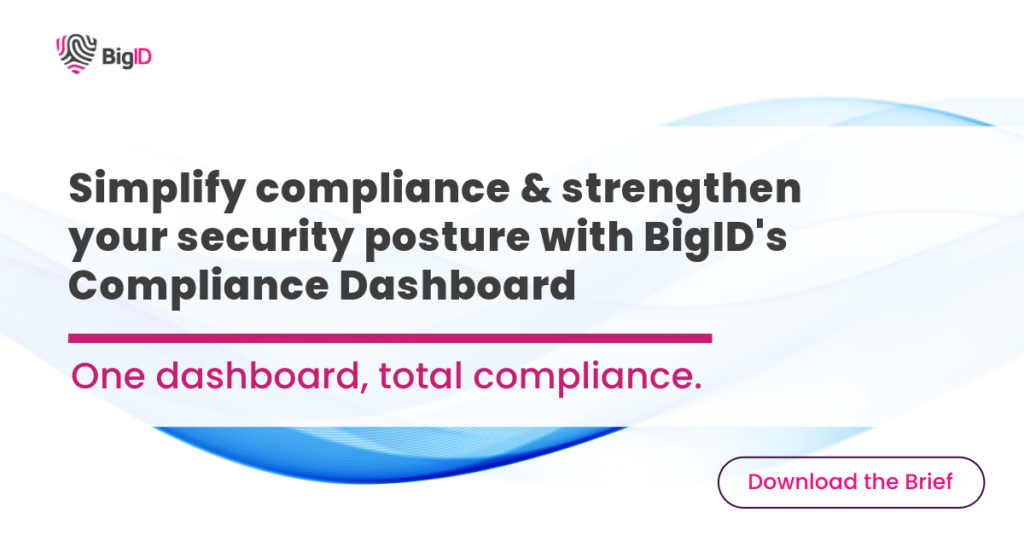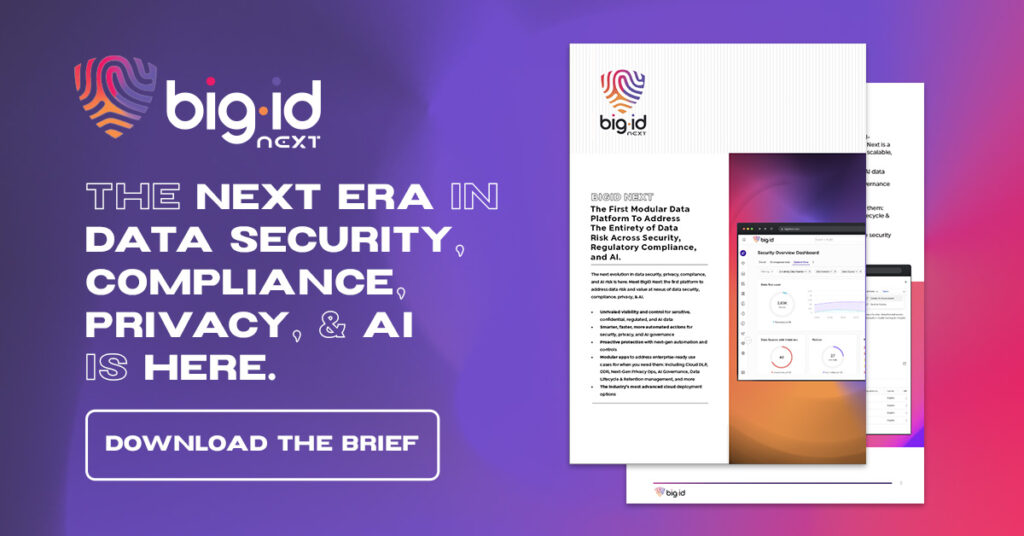L'industrie manufacturière connaît une transformation numérique rapide, tirant parti de l'IoT (Internet des objets), de la robotique, de l'IA, de l'analyse de données et des technologies du cloud computing pour améliorer sa productivité et son efficacité. Cependant, cette transition numérique vers des usines intelligentes pose des défis en matière de sécurité des données, de conformité et de gestion des risques.
Selon le Rapport d'IBM sur le coût des violations de données en 2024, le coût moyen d'une violation de données dans le secteur manufacturier était de $5,56 millions, contre $4,73 millions de dollars américains en 2023. Le secteur manufacturier doit faire évoluer sa stratégie de cybersécurité à mesure qu'il continue d'évoluer technologiquement pour surmonter ses défis uniques en matière de cybersécurité et réduire l'impact des cyberattaques et des violations de données.
Outre la protection contre les cyberattaques, l'industrie manufacturière doit se conformer à des exigences réglementaires et de confidentialité des données de plus en plus strictes. Le respect des réglementations en matière de protection des données et de confidentialité garantit la sécurité des données sensibles, réduisant ainsi les coûts et les risques réglementaires pour les fabricants.
Voici les réglementations spécifiques en matière de confidentialité et de sécurité des données qui ont un impact sur l’industrie manufacturière :
Réglementations américaines :
- Cadre de cybersécurité du NIST (CSF) : Fournit des lignes directrices pour améliorer la gestion des risques de cybersécurité.
- CMMC (Certification du modèle de maturité de la cybersécurité) : Obligatoire pour les entrepreneurs de la défense travaillant avec le DoD.
- HIPAA (loi sur la portabilité et la responsabilité en matière d'assurance maladie) : Pertinent pour les fabricants qui traitent des données sur les dispositifs médicaux.
- ITAR (Règlement sur le trafic international des armes) : Régit le traitement des données techniques liées à l’armée.
- CCPA (Loi californienne sur la protection de la vie privée des consommateurs) : Impacte les fabricants qui collectent des données sur les consommateurs en Californie.
Réglementations internationales :
- RGPD (Règlement général sur la protection des données – UE) : Réglemente la collecte et le traitement des données personnelles pour les fabricants opérant ou vendant dans l'UE.
- LPRPDE (Loi sur la protection des renseignements personnels et les documents électroniques – Canada) : Régit la protection des données des entreprises canadiennes.
- PIPL (Loi sur la protection des informations personnelles – Chine) : Impose des contrôles stricts sur la collecte de données et les transferts transfrontaliers pour les entreprises opérant en Chine.
Normes spécifiques à l’industrie :
- ISO 27001 : Norme internationale relative aux systèmes de gestion de la sécurité de l'information (SMSI).
- ISA/CEI 62443 : Cadre de cybersécurité pour la sécurisation des systèmes d'automatisation et de contrôle industriels (IACS).
- TISAX (Trusted Information Security Assessment Exchange – Automobile) : Norme de sécurité spécifique à l'industrie pour les constructeurs et fournisseurs automobiles.

Types de données pertinentes pour l'industrie manufacturière
L’industrie subit une pression énorme pour établir cyber-résilience, et la protection des précieuses données constitue la première étape.
Voici quelques types courants de données que les fabricants doivent protéger :
- Propriété intellectuelle (PI) : Secrets commerciaux, brevets, formules exclusives et plans de conception.
- Données sur les produits et l'ingénierie : Fichiers CAO, spécifications techniques et documents de R&D.
- Données sur la chaîne d'approvisionnement et la logistique : Contrats fournisseurs, détails d’expédition et registres d’inventaire.
- Informations clients et fournisseurs : PII (informations personnelles identifiables), coordonnées et accords commerciaux.
- Données financières : Rapports de revenus, structures de coûts et enregistrements transactionnels.
- Données de technologie opérationnelle (OT) : Données des capteurs IoT, mesures de performances des machines et journaux d'automatisation d'usine.
- Données sur les employés : Dossiers RH, informations sur la paie et informations personnelles identifiables sur les employés.
- Conformité et données réglementaires : Documentation relative aux normes de l'industrie (par exemple, ISO, NIST, GDPR, CCPA).
- Journaux des incidents et de sécurité : Journaux de cybersécurité, enregistrements d’accès et évaluations de vulnérabilité.
- Données marketing et commerciales : Analyse de l'engagement client, modèles de tarification et prévisions de ventes.
Défis de l'industrie manufacturière en matière de sécurité et de conformité des données
Avec l'expansion rapide des opérations numériques et le rôle crucial du secteur manufacturier dans la chaîne d'approvisionnement mondiale, ce dernier est devenu la cible privilégiée des cybercriminels ces dernières années. En 2024, le secteur manufacturier a été la cible de 25,71 TP3T de cyberattaques dans tous les secteurs d'activité, ce qui le rend particulièrement vulnérable aux rançongiciels, au vol de propriété intellectuelle et aux perturbations de la chaîne d'approvisionnement. Le renforcement des cadres de cybersécurité dans ce secteur est crucial pour atténuer ces risques.
1. Élargissement de l'empreinte des données
L'adoption de l'IoT et d'un réseau interconnecté de systèmes distribués, souvent utilisés pour l'automatisation des usines, génère des volumes de données considérables, rendant leur gestion complexe. La dispersion des données structurées et non structurées dans le cloud et les environnements sur site accroît les risques de sécurité et crée une surface d'attaque importante.
2. Écosystème de données complexe
Les fabricants disposent souvent d'écosystèmes de données complexes, comprenant des systèmes hérités, des applications cloud et le partage de données avec des tiers. Le recours à des systèmes plus anciens, contenant des failles de sécurité exploitables et non corrigées, accroît le risque de violation de données.
3. Protection de la propriété intellectuelle (PI)
Les fabricants gèrent des conceptions sensibles, des brevets et des informations exclusives. Tout accès non autorisé ou fuite de données peut entraîner une perte de revenus et constituer un désavantage concurrentiel.
4. Conformité et défis réglementaires
Des réglementations strictes telles que le RGPD, le CCPA et les exigences de conformité sectorielles exigent une protection rigoureuse des données. Le non-respect de ces réglementations peut entraîner de lourdes amendes et une atteinte à la réputation.
5. Risques liés aux tiers et à la chaîne d'approvisionnement
Le secteur manufacturier s'appuie sur de vastes réseaux de fournisseurs, ce qui accroît l'exposition aux vulnérabilités des tiers. Il est donc essentiel de garantir un partage sécurisé des données afin de préserver la chaîne d'approvisionnement et de réduire le risque de perturbations dues aux cyberattaques visant les fournisseurs et les partenaires.
6. Menaces de cybersécurité
La multiplication des attaques par rançongiciel et des violations de données est devenue la principale cybermenace pour l'industrie manufacturière, menaçant la continuité opérationnelle, augmentant les temps d'arrêt et les coûts. De plus, les menaces internes et les contrôles d'accès mal configurés exposent davantage les données sensibles.
BigID aide les détaillants et les fabricants mondiaux à automatiser la confidentialité, la sécurité et la conformité [Étude de cas]
Une marque mondiale de vente au détail et de fabrication utilise BigID pour identifier, découvrir et classer toutes ses données sensibles, critiques et personnelles dans des environnements complexes. Cela permet de sécuriser les activités de fusions-acquisitions, d'optimiser les audits de conformité mondiaux et d'adopter une approche « privilégiant la confidentialité » pour accélérer les initiatives de gouvernance et de sécurité des données. Grâce à BigID, cette marque a pu :
- Créer un inventaire holistique des données : Créez et maintenez automatiquement un inventaire de données pour découvrir les données sombres, les informations personnelles et les informations personnelles identifiables (IPI) et servir de source unique de vérité pour les initiatives de confidentialité et de gouvernance.
- Accélération d'une migration cloud sécurisée : Nettoyage et validation du transfert des bonnes données vers Workday depuis l'ancienne plateforme RH, garantissant ainsi qu'aucune donnée inutile n'a été transférée.
- Valider les transferts de données de fusions et acquisitions : Assurez-vous que seules les données appropriées, y compris les données client ou IP, sont partagées et transférées après la vente d'une division.
- Réduire le risque interne : Vérifiez et mettez en œuvre les contrôles appropriés autour des données sensibles pour empêcher tout accès et utilisation externes non autorisés, réduisant ainsi le risque interne.
Comment BigID aide les fabricants à protéger leurs données, à réduire les risques et à se conformer aux réglementations
BigID BigID offre aux fabricants une découverte avancée des données, une automatisation de la conformité et une atténuation des risques, garantissant ainsi l'intégrité des données et la résilience opérationnelle. Grâce aux capacités d'IA de BigID, les fabricants bénéficient d'une visibilité complète sur leurs données métier critiques, protègent leurs informations sensibles, gèrent les risques, optimisent la conformité et protègent leur activité contre les cybermenaces en constante évolution.
Grâce à l'approche de sécurité par conception de BigID, vous pouvez :
- Découvrez vos données : Découvrez et cataloguez vos données sensibles, y compris structurées, semi-structurées et non structurées, dans des environnements sur site et dans le cloud.
- Connaître ses données : Classez, catégorisez, marquez et étiquetez automatiquement les données sensibles avec une précision, une granularité et une ampleur inégalées.
- Améliorer la sécurité des données : Priorisez et ciblez de manière proactive les risques liés aux données et automatisez la gestion de la posture de sécurité des données (DSPM).
- Remédier aux données à votre façon : Gérez la correction des données et déléguez aux parties prenantes, ouvrez des tickets ou effectuez des appels API sur votre pile technologique.
- Activer la confiance zéro : Réduisez les accès surprivilégiés et les données surexposées et rationalisez la gestion des droits d’accès pour permettre la confiance zéro.
- Atténuer les risques liés aux initiés : Surveillez, détectez et répondez de manière proactive aux expositions internes non autorisées, aux utilisations et aux activités suspectes liées aux données sensibles.
- Réduisez votre surface d'attaque : Réduire la surface d'attaque en éliminant de manière proactive les données sensibles inutiles et non essentielles à l'activité de l'entreprise.
- Évaluer les risques de la chaîne d’approvisionnement : Automatisez les évaluations et la surveillance des fournisseurs pour évaluer la posture de sécurité des fournisseurs tiers, réduire les risques liés aux tiers et vérifier que tous les fournisseurs respectent les normes de sécurité et de protection des données.
- Sécurisez votre migration vers le cloud : Optimisez les migrations vers le cloud grâce à des informations et une conformité basées sur les données, réduisez automatiquement les données redondantes et déplacez les données les plus importantes.
- Rationaliser la réponse aux violations de données : Détectez et enquêtez rapidement et précisément sur l'impact des violations, facilitez une réponse rapide aux incidents et informez les autorités compétentes ainsi que les étudiants et le personnel concernés.
- Accélérer la sécurité de l'IA : BigID élabore efficacement des politiques pour régir l'IA en fonction de la confidentialité, de la sensibilité, de la réglementation et de l'accès afin de contrôler les données partagées avec les LLM et les applications d'IA. Utilisez l'IA avec des garde-fous responsables pour gérer et protéger les informations propriétaires, la propriété intellectuelle et les secrets commerciaux.
- Assurer la conformité : Automatisez la conformité avec des capacités et des cadres de confidentialité et de sécurité de bout en bout pour protéger les données personnelles, sensibles et réglementées.
Planifiez une démonstration individuelle avec l'un de nos experts en sécurité des données aujourd'hui pour voir comment BigID peut transformer la sécurité des données et la conformité pour les fabricants.


